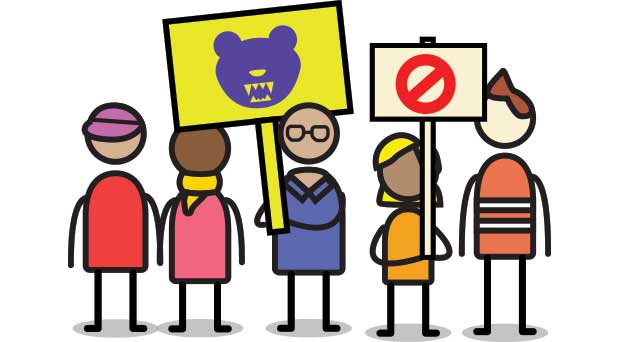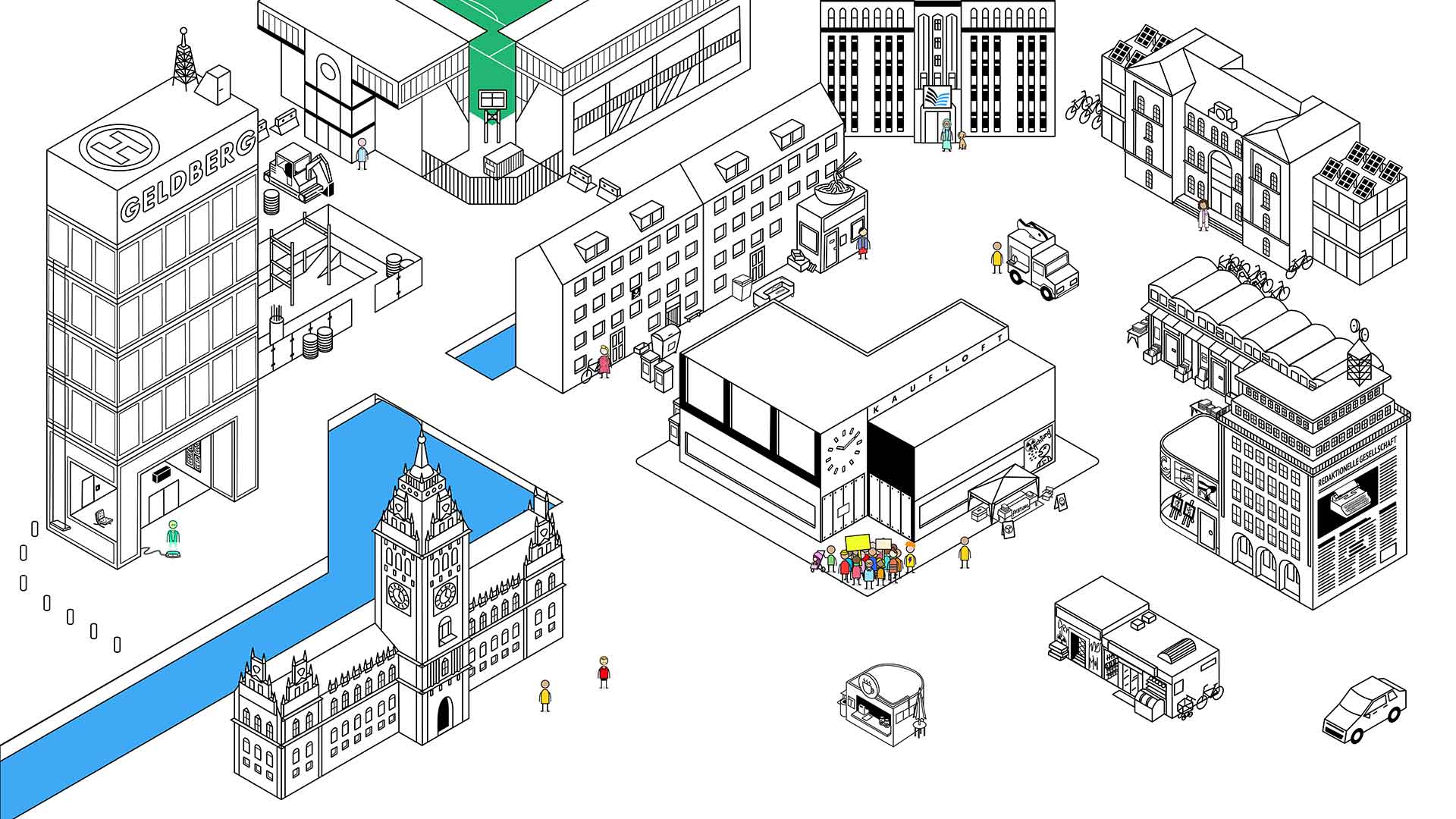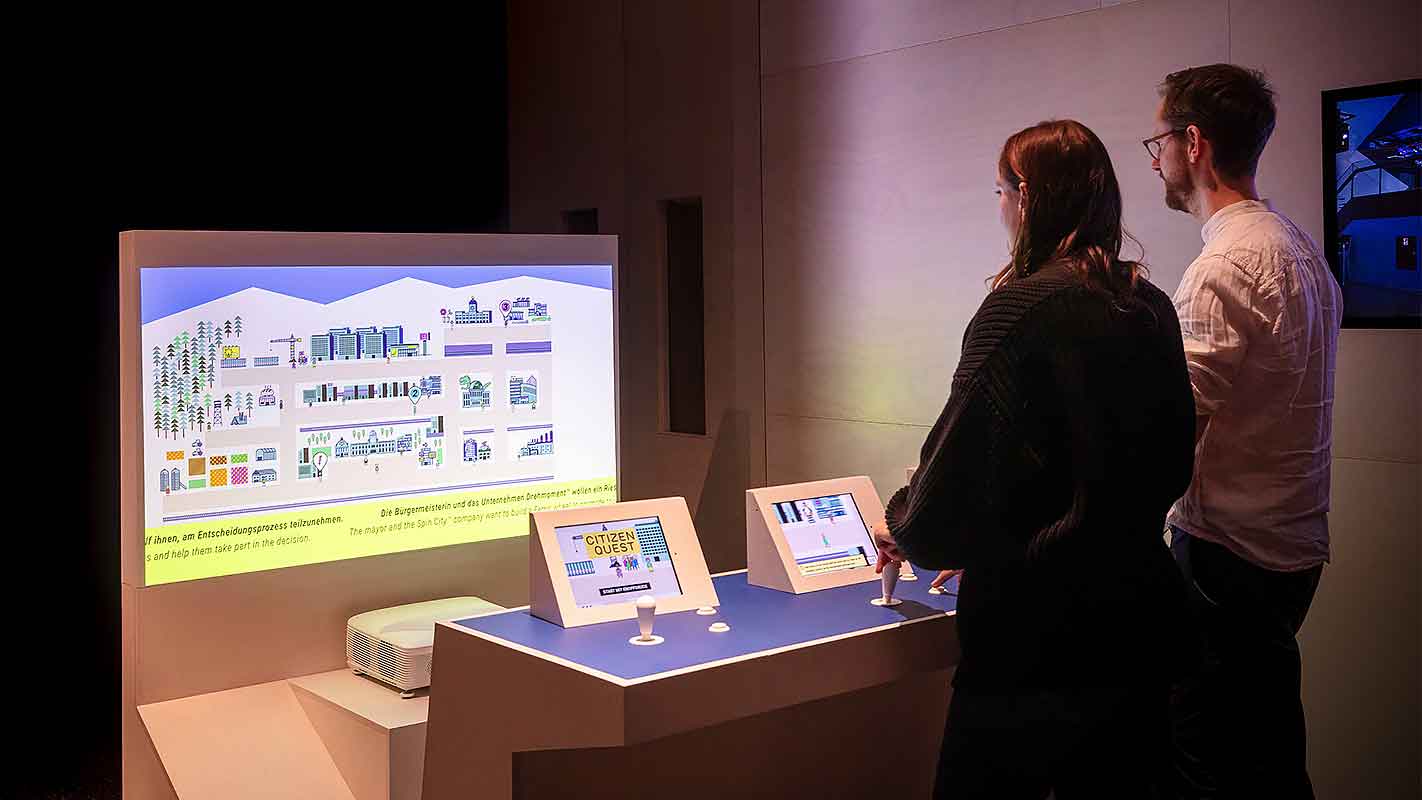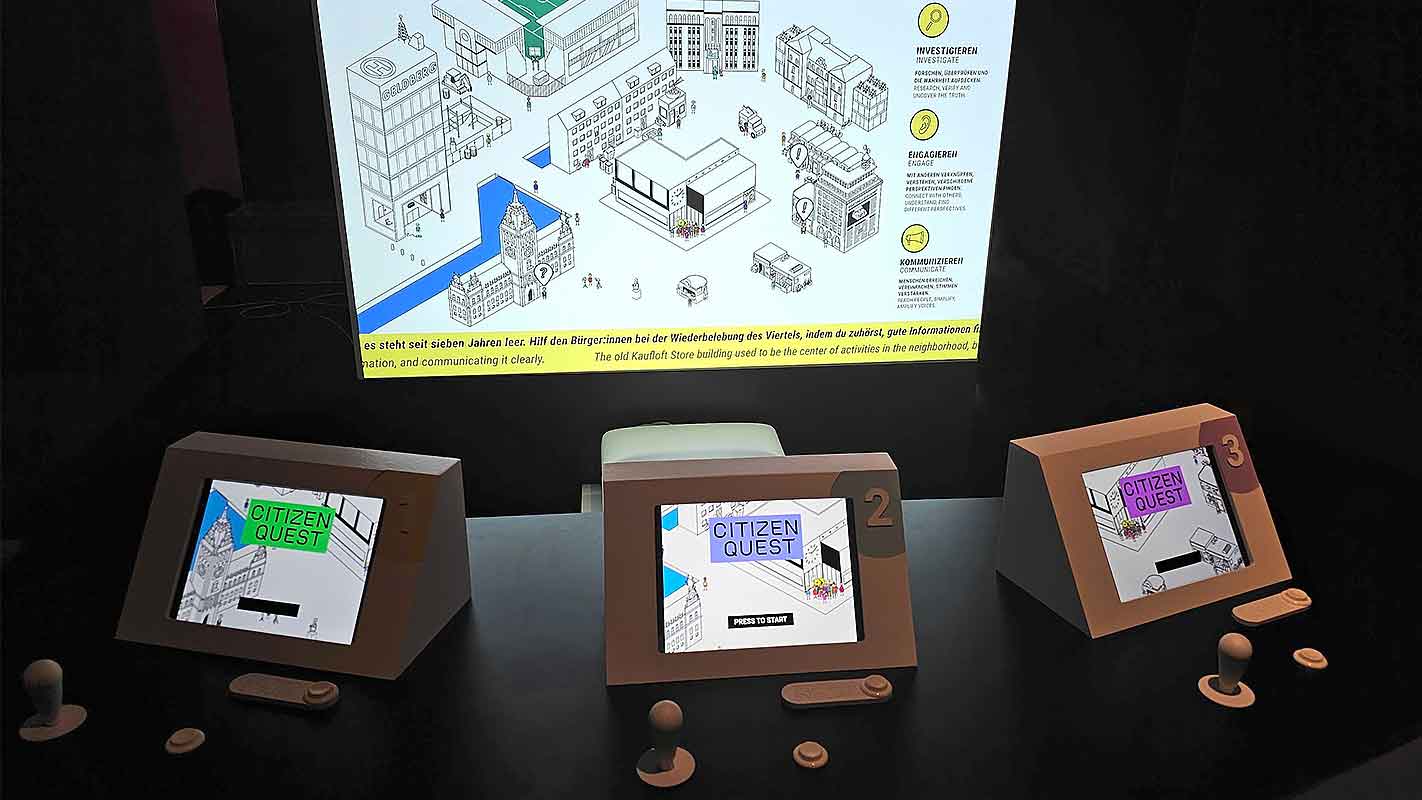Citizen Quest
Citizen Quest is a multiplayer video game created by Imaginary for exploring key issues like digital democracy, the spread of misinformation and disinformation, 21st-century skills, and civic media literacy, in museum and exhibition settings.
Players take on the role of an everyday citizen navigating a small city, where they can interact with various inhabitants. The characters present players with a range of “quests,” including tasks like:
- finding an expert to debunk misinformation,
- gathering opinions from citizens on a particular issue,
- mediating conflicts,
- searching for ideas to solve a problem,
- helping to spread relevant information,
- and more.
Each quest is linked to a larger “story,” which revolves around a crisis or emerging situation that the city is confronting. For example:

- Bear sightings in the nearby woods have many citizens worried.
- A corporation has proposed an AI-based surveillance system to address rising crime rates.
- The city wants to repurpose a shuttered department store to revitalize the surrounding neighborhood.
When a story starts, only a few people are in charge of an important decision, and they are operating with incomplete or flawed information. By completing quests, players can engage and amplify the voices of a broader range of people—domain experts, marginalized age groups, minorities, or everyday citizens. This will cause the story's outcome to change to one of several possible endings. The game’s objective is to move society away from polarization, fake news, and lack of trust in institutions, to a collectively built consensus. Players improve the outcome by identifying key societal actors, understanding their perspectives, and utilizing the tools of democratic participation.

Citizen Quest is set on a city map that features key democratic institutions, such as the town hall, a research university, local businesses, corporate offices, and a newspaper headquarters, among others.

The characters represent either influential societal figures—politicians, scientists, engineers, journalists—or diverse segments of the population with varying socioeconomic backgrounds and political views. While the game uses simple, iconic illustrations, it addresses real-world issues like discrimination, privacy rights, gentrification, the gig economy, and the ethical use of AI.
Multiple versions
Citizen Quest has its own scripting language and a modular architecture, which allows for the creation of new quests and stories on a wide range of topics. The city map and character graphics can also be replaced to further customize the game.
The original version, developed with support from Futurium, includes multiple storylines focused on various aspects of digital democracy. A second version was created for the Science Year 2024 exhibition on the MS Wissenschaft, centered around the theme of Freedom, with support from MaRDI. The goal of this version is to help citizens in some sort of conflict that limits their freedoms. The latest version, developed with the support and collaboration of the ZEIT-Stiftung Bucerius, focuses on the transference of journalistic skills to citizens to help them tackle the challenges of a modern democracy.
Future development
 Citizen Quest is continuously being developed to enhance its playability, visuals, and content. We are also exploring the creation of intuitive storyline-building tools for co-creation workshops. Topics could be discussed and researched in groups, and as conflicts, stakeholders, viewpoints, and outcomes are identified, they could be used by participants to build a new game.
Citizen Quest is continuously being developed to enhance its playability, visuals, and content. We are also exploring the creation of intuitive storyline-building tools for co-creation workshops. Topics could be discussed and researched in groups, and as conflicts, stakeholders, viewpoints, and outcomes are identified, they could be used by participants to build a new game.


